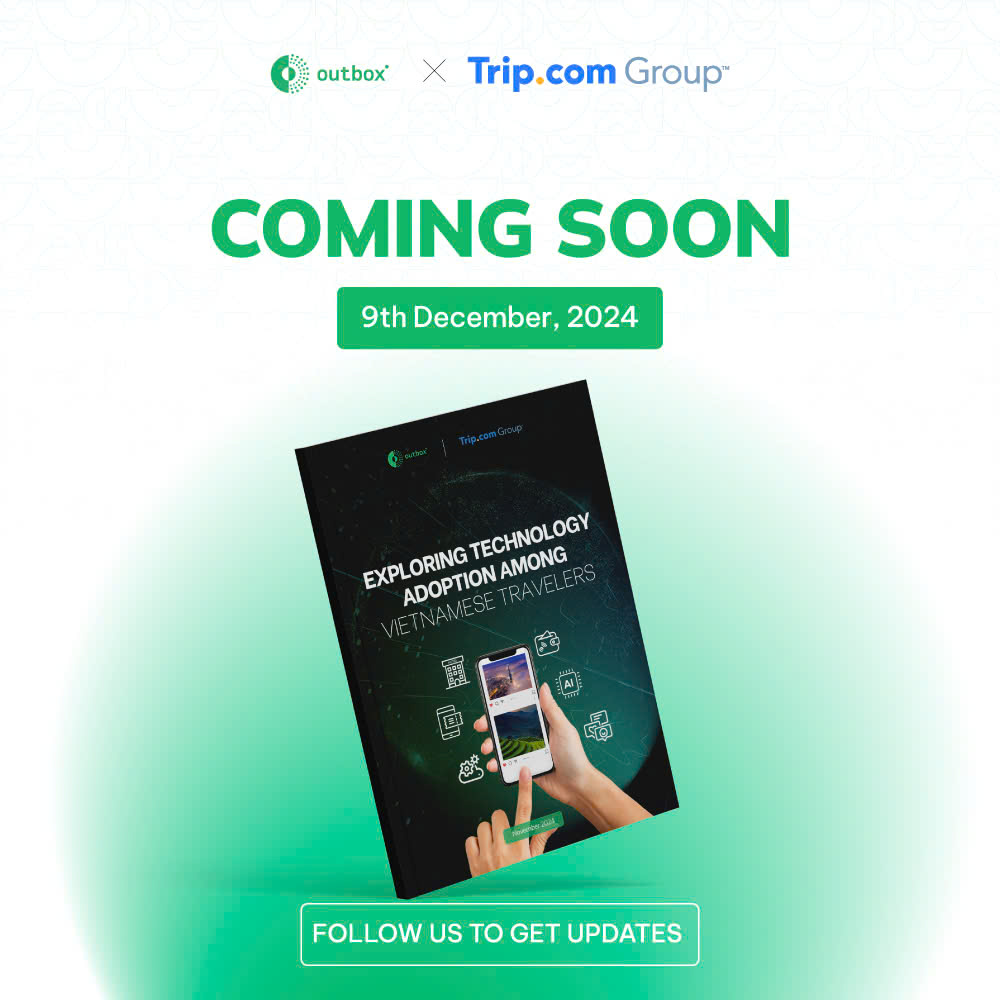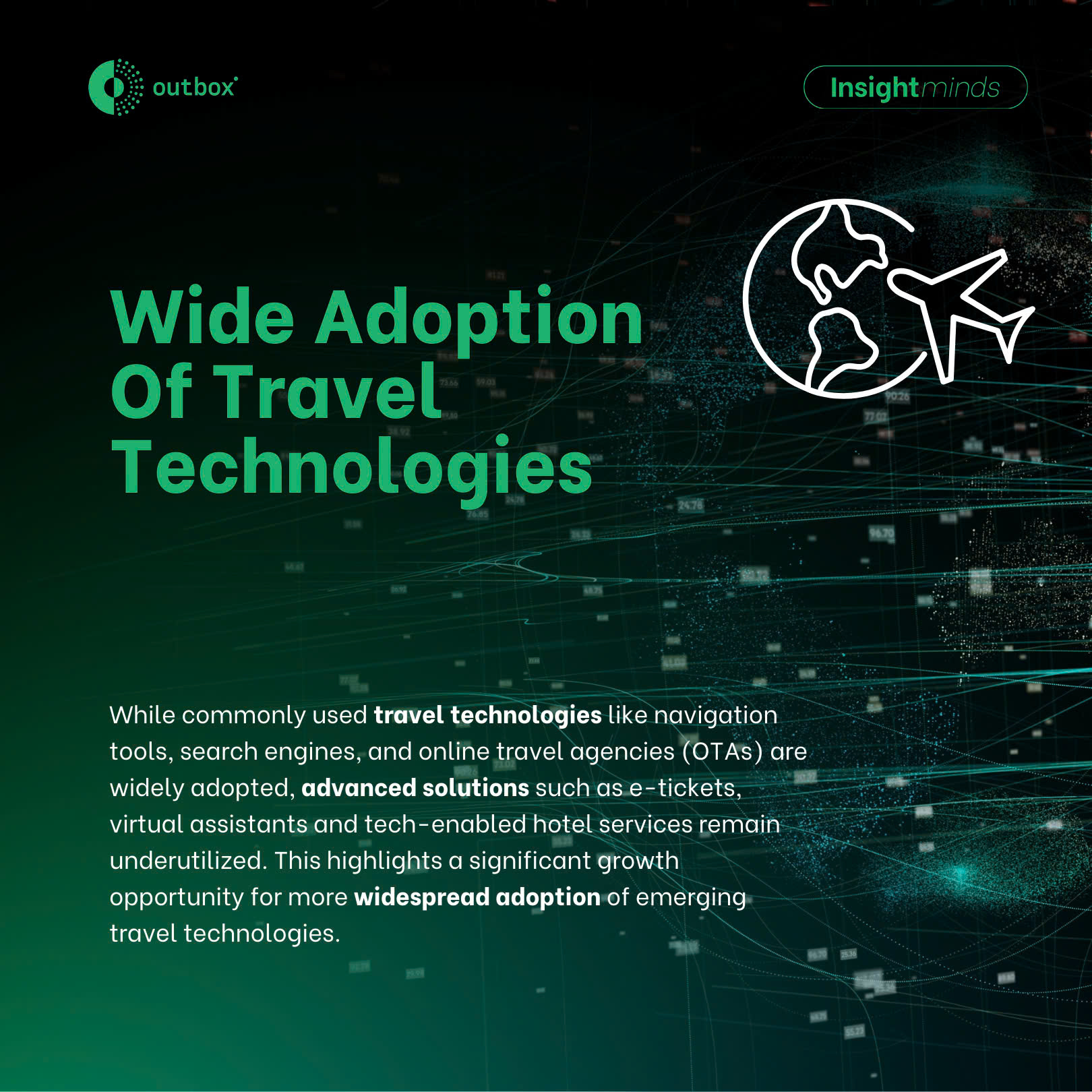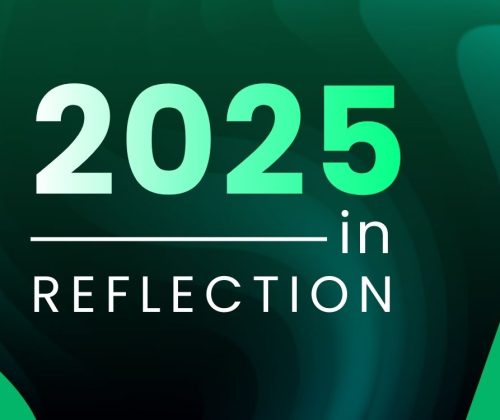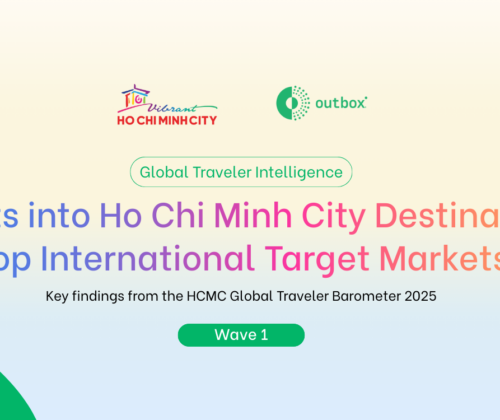Vietnam is stepping into the spotlight as a vibrant market for travel technology of the region, driven by its rapidly evolving digital landscape and increasing consumer demand. With a tech-savvy population and supportive policies, the country is shaping a more connected and sustainable travel ecosystem. This blog explores how technology is influencing and fueling growth in the Vietnam travel industry.
1. A Strong Digital Ecosystem Paving the Way
Vietnam’s digital transformation is underpinned by impressive numbers: over 78 million internet users and a social media penetration rate of 73.3%—a fertile ground for digital innovation. This widespread connectivity allows businesses to deliver personalized, seamless experiences to travelers.
Business and government-led initiatives in AI, IoT, VR, and big data are reshaping the industry, targeting not just operational efficiency but also meaningful traveler engagement. Projections indicate that Vietnam’s online travel market will reach $7 billion by 2025, up from $1 billion in 2021 – a testament to the sector’s dynamic potential.
Businesses and destinations have a unique opportunity to leverage this ecosystem to develop travel solutions that are not only effective but also resilient and forward-looking.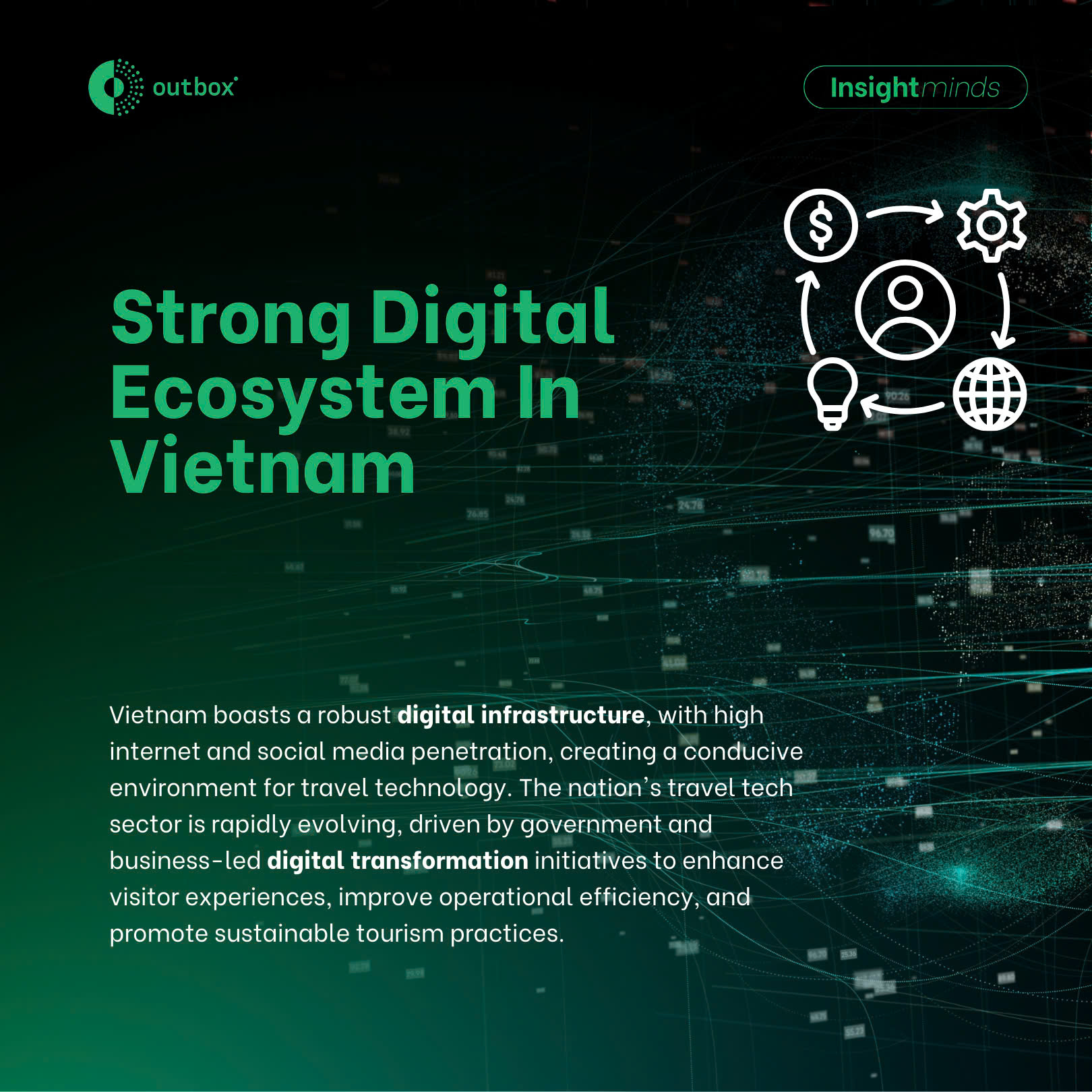
2. Mainstream Adoption and Untapped Potential
Popular technologies such as online travel agencies (OTAs), navigation apps, and e-wallets are now integral to Vietnamese travelers’ journeys. These tools help streamline trip planning, enable seamless payments, and simplify navigation. However, there is significant room for innovation.
Advanced solutions like e-tickets, virtual assistants, and tech-enabled hotel services remain underutilized, with awareness and usage rates still low. Only about 30% of Vietnamese travelers reported using e-tickets or tech-enabled hotel services in the past 12 months, while adoption of virtual assistants lingers below 15%, according to Vietnam Travel Tech Survey 2024 by The Outbox Company.
Closing this gap presents an enormous opportunity for businesses to cater to evolving traveler expectations, leveraging these tools to enhance customer satisfaction and differentiate themselves in a competitive market.

3. Addressing Barriers to a Seamless Experience
Despite the promise of technology, Vietnamese travelers face challenges that hinder its full potential. Common barriers can be mentioned as Platform-specific issues, unreliable content, particularly on social media, or limited accessibility affecting less tech-savvy users.
To overcome these obstacles, businesses must prioritize user-centric designs, robust security measures, and clear, accurate communication. Improved accessibility and better technical support will be essential to unlocking the full potential of travel technologies for all user segments.

4. Optimism and Innovations for the Future
Vietnamese travelers are optimistic about the transformative potential of new technologies. The allure of personalized, immersive solutions such as AI-powered chatbots, virtual reality (VR), and augmented reality (AR) is undeniable.
According to the report, 72% of respondents are eager to adopt payment flexibility, while 63% are interested in offline access to maps/translation tools, and 60% would like to have virtual reality (VR) experiences.
The integration of these technologies promises to revolutionize the industry. AI tools, for example, can provide tailored recommendations, streamline booking processes, and offer real-time support. Meanwhile, VR and AR can deliver rich, engaging previews of destinations, allowing travelers to explore virtually before they embark on physical journeys.
As these innovations mature, businesses that embrace them early will capture the attention of digitally savvy travelers and set themselves apart in a competitive market.
The Road Ahead
As Vietnam’s travel industry evolves, businesses have a unique opportunity to take the lead by embracing advanced technologies. By addressing current challenges and focusing on innovative solutions, the tourism sector can secure a sustainable and prosperous future.
The digital age has opened up new possibilities for the Vietnam travel sector. For those who are willing to adapt and innovate, the rewards are significant—not only in terms of growth but also in creating memorable experiences that deeply resonate with travelers.
